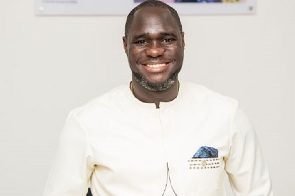…US State Department report submitted to Congress reveals
By Peter Kojo Apisawu
The US Government has observed that corruption is pervasive in Ghana’s judiciary including its law enforcement community.
The report specifically noted with grave concern that despite the regular arrests of suspected narcotic traffickers, Ghana has a low rate of conviction, which many officials believe is likely due to corruption within the judiciary. In its 2010 International Narcotics Control Strategy Report (INCSR), the US Government also hinted on the perceived corruption in the Narcotics Control Board (NACOB) as well as the Police Service.
“…corruption is pervasive in Ghana’s law enforcement community, including sections of the police and the NACOB. Despite the regular arrests of suspected narcotics traffickers, Ghana has a low rate of conviction, which many officials believe is likely due to corruption within the judiciary,” it says.
The report which assessed various countries’ performance in the fight against narcotics was analysed by the Bureau for International Narcotics and Law Enforcement Affairs of the US State Department and submitted to Congress on March 1, 2010. The INCSR further noted that in spite of the progress being made, corruption and a lack of resources continued to impede interdiction efforts.
It praised the Mills Administration for its commitment to fighting the drug menace in the country. According to the latest statistics released by INCSR, the Mills Government has made a lot of progress as against the Kufuor government in the fight against drug trafficking in the country.
The US Administration attributed the increase in seizures to greater vigilance on the part of the Mills Government.
It observed that the Mills Administration made more seizures of cocaine last year as against the same period in 2008.
It further noted that in the first half of 2009, 62 kilogrammes of cocaine were seized by the law enforcement agencies as against 33 kilogrammes seized in 2008. According to the report, the 2009 half-year cocaine seizure represented 89% more than the seizure made by the Kufuor Administration in the whole of 2008.
The report acknowledged the resolve of President J. E. A. Mills to stop people from using Ghana as narcotics transit corridor.
General News of Tuesday, 24 August 2010
Source: Peter Kojo Apisawu
















